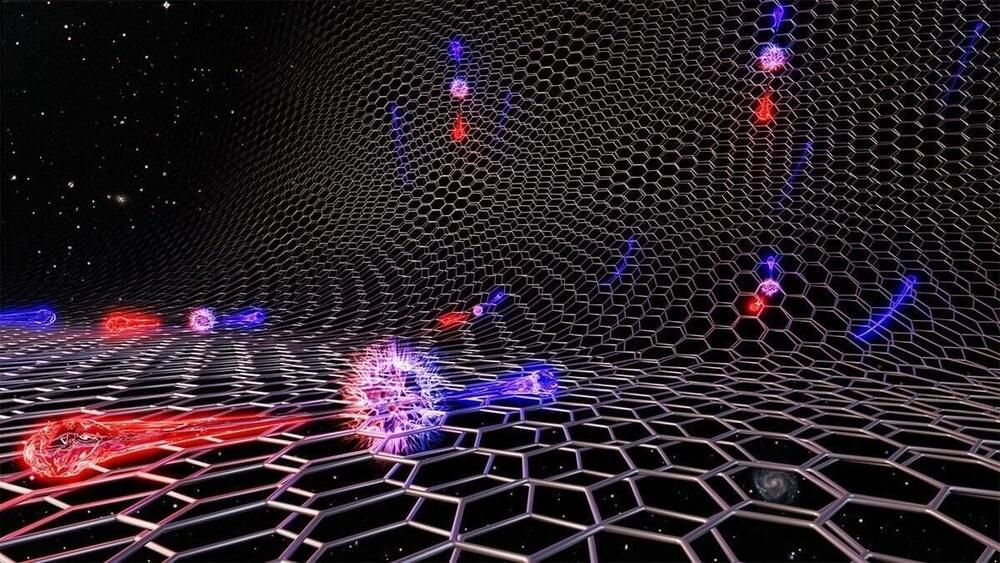Seeing stage separation in a whole new light after this flight.
Get the latest international news and world events from around the world.

Over 20,000 data center management systems exposed to hackers
Researchers have found over 20,000 instances of publicly exposed data center infrastructure management (DCIM) software that monitor devices, HVAC control systems, and power distribution units, which could be used for a range of catastrophic attacks.
Data centers house costly systems that support business storage solutions, operational systems, website hosting, data processing, and more.
The buildings that host data centers must comply with strict safety regulations concerning fire protection, airflow, electric power, and physical security.


This Volcano-Powered ‘Bitcoin City’ is Coming to El Salvador
The country is doubling down on its Bitcoin gamble in some style. But will it pay off?
For more by Tomorrow’s Build subscribe now — https://bit.ly/3vOOJ98
Narrator — Fred Mills.
Executive Producers — Fred Mills and Graham MacAree.
Producer — Adam Savage.
Video Editing — Aaron Wood.
Motion Graphics — Vince North.
Additional footage and images courtesy of Google Earth, Al Jazeera, Bloomberg, DW News, Raúl Arias/CC BY 2.0, United Nations, WSJ and Yahoo Finance.
Follow us on Twitter — https://twitter.com/TomorrowsBuild/
Like us on Facebook — https://www.facebook.com/TomorrowsBuild/
Follow us on LinkedIn — https://www.linkedin.com/company/TomorrowsBuild/
Follow us on Instagram — https://www.instagram.com/TomorrowsBuild/
#construction #architecture #bitcoin.
Tomorrow’s Build is owned and operated by The B1M Limited. We welcome you sharing our content to inspire others, but please be nice and play by our rules: http://www.theb1m.com/guidelines-for-sharing.


AI nanny created by Chinese scientists to grow humans in robot wombs
The AI nanny is here! In a new feat for science, robots and AI can now be paired to optimise the creation of human life. In a Matrix-esque reality, robotics and artificial intelligence can now help to develop babies with algorithms and artificial wombs.
Reported by South China Morning Post, Chinese scientists in Suzhou have developed the new technology. However, there are worries surrounding the ethics of actually artificially growing human babies.
The World in 2080: Top 7 Future Technologies
This video covers the world in 2080 and its future technologies. Watch this next video about the world in 2070: https://bit.ly/3nYXvjf.
► BlockFi: Get Up To $250 In Bitcoin: https://bit.ly/3rPOf1V
► Jarvis AI: Write 5x Faster With Artificial Intelligence: https://bit.ly/3HbfvhO
► M1 Finance: Open A Roth IRA And Get Up To $500: https://bit.ly/3KHZvq0
► Udacity: 75% Off All Courses (Biggest Discount Ever): https://bit.ly/3j9pIRZ
► Business Ideas Academy: Start A Business You Love: https://bit.ly/3KI7B1S
SOURCES:
• https://www.futuretimeline.net.
• The Future of Humanity (Michio Kaku): https://amzn.to/3Gz8ffA
• The Singularity Is Near: When Humans Transcend Biology (Ray Kurzweil): https://amzn.to/3ftOhXI
• Physics of the Future (Michio Kaku): https://amzn.to/33NP7f7
▶️ RECOMMENDED PLAYLISTS:
Future Technologies: https://youtube.com/playlist?list=PLiUrMrgIdon8afD1EtG3_mabSHLrfdKZJ
Technology Trends: https://youtube.com/playlist?list=PLiUrMrgIdon_H3FbJQFXqnjlyOYdHpY9q.
Business Tech: https://youtube.com/playlist?list=PLiUrMrgIdon-SUSL_8YQpO1Kqgsf5ZzyM
Business Innovation Tutorials: https://youtube.com/playlist?list=PLiUrMrgIdon97qKW3TaPO9TqC6U3zVC3W
Business Strategy Tutorials: https://youtube.com/playlist?list=PLiUrMrgIdon87F3Ads27NkSy47apAcOIH
💡 On this channel, I explain the following concepts:
• Future and emerging technologies.
• Future and emerging trends related to technology.
• The connection between Science Fiction concepts and reality.
SUBSCRIBE: https://bit.ly/3geLDGO
Disclaimer:

RefSeek 404
Just reminder, Google isn’t everything.
www.refseek.com — Academic Resource Search. More than a billion sources: encyclopedia, monographies, magazines.
www.wo… See more.
Sorry! The file you requested could not be found. Return to RefSeek
An error report has been generated and sent to the system administrator.

How ‘Dormant’ Cells In The Aging Brain Contribute To Cognitive Decline
The Neuro-Network.
𝐇𝐨𝐰 ‘𝐃𝐨𝐫𝐦𝐚𝐧𝐭’ 𝐂𝐞𝐥𝐥𝐬 𝐈𝐧 𝐓𝐡𝐞 𝐀𝐠𝐢𝐧𝐠 𝐁𝐫𝐚𝐢𝐧 𝐂𝐨𝐧𝐭𝐫𝐢𝐛𝐮𝐭𝐞 𝐓𝐨 𝐂𝐨𝐠𝐧𝐢𝐭𝐢𝐯𝐞 𝐃𝐞𝐜𝐥𝐢𝐧𝐞
𝘾𝙤𝙜𝙣𝙞𝙩𝙞𝙫𝙚 𝙙𝙚𝙘𝙡𝙞𝙣𝙚 𝙖𝙣𝙙 𝙛𝙤𝙧𝙜𝙚𝙩𝙩𝙞𝙣𝙜 𝙩𝙝𝙞𝙣𝙜𝙨 𝙖𝙨 𝙬𝙚 𝙜𝙚𝙩 𝙤𝙡𝙙𝙚𝙧 𝙞𝙨 𝙖𝙡𝙢𝙤𝙨𝙩 𝙖 𝙧𝙞𝙜𝙝𝙩 𝙤𝙛 𝙥𝙖𝙨𝙨𝙖𝙜𝙚. 𝘼𝙡𝙡… See more.
Cellular senescence is a state where cells get stuck in a particular phase of their cell cycle, which can affect physiological function. In the brain this effect can block neuroregeneration. Clearing them may reverse certain aspects of cognitive decline associated with aging, including memory loss.